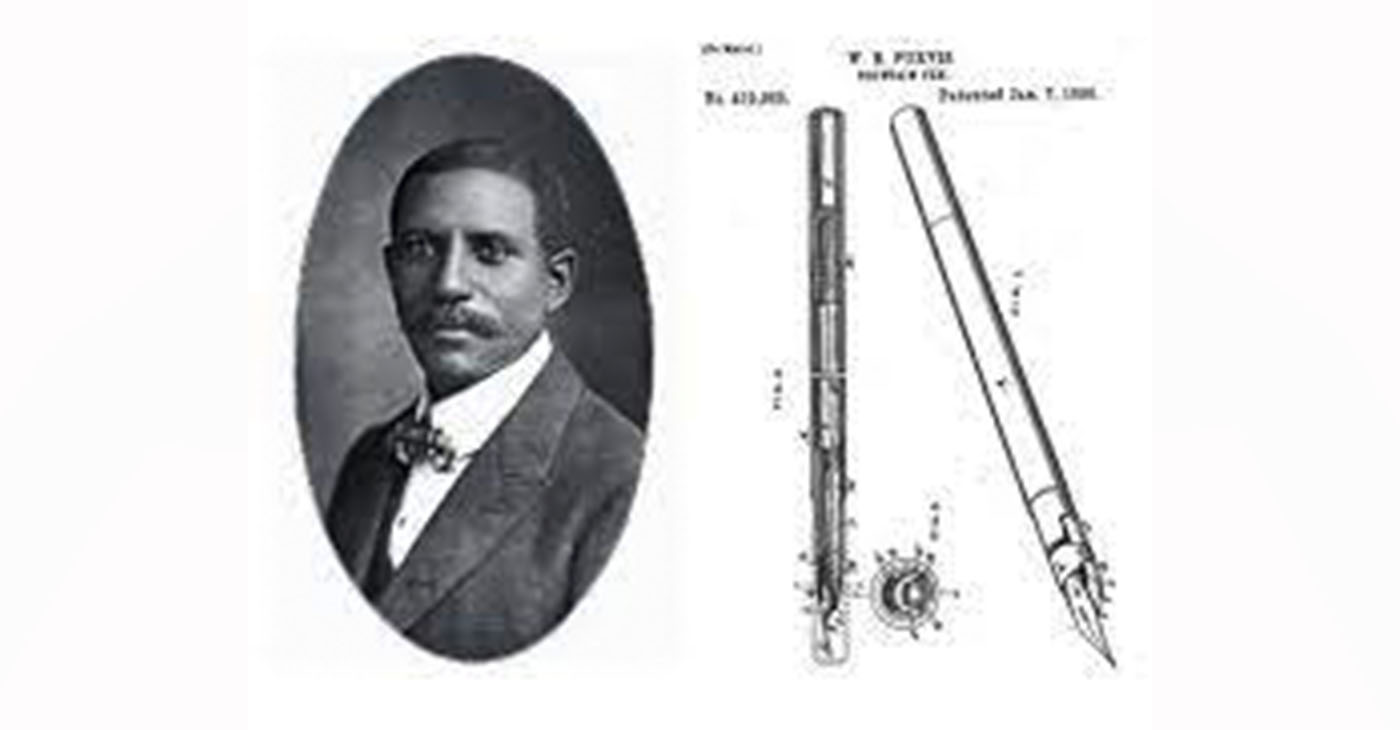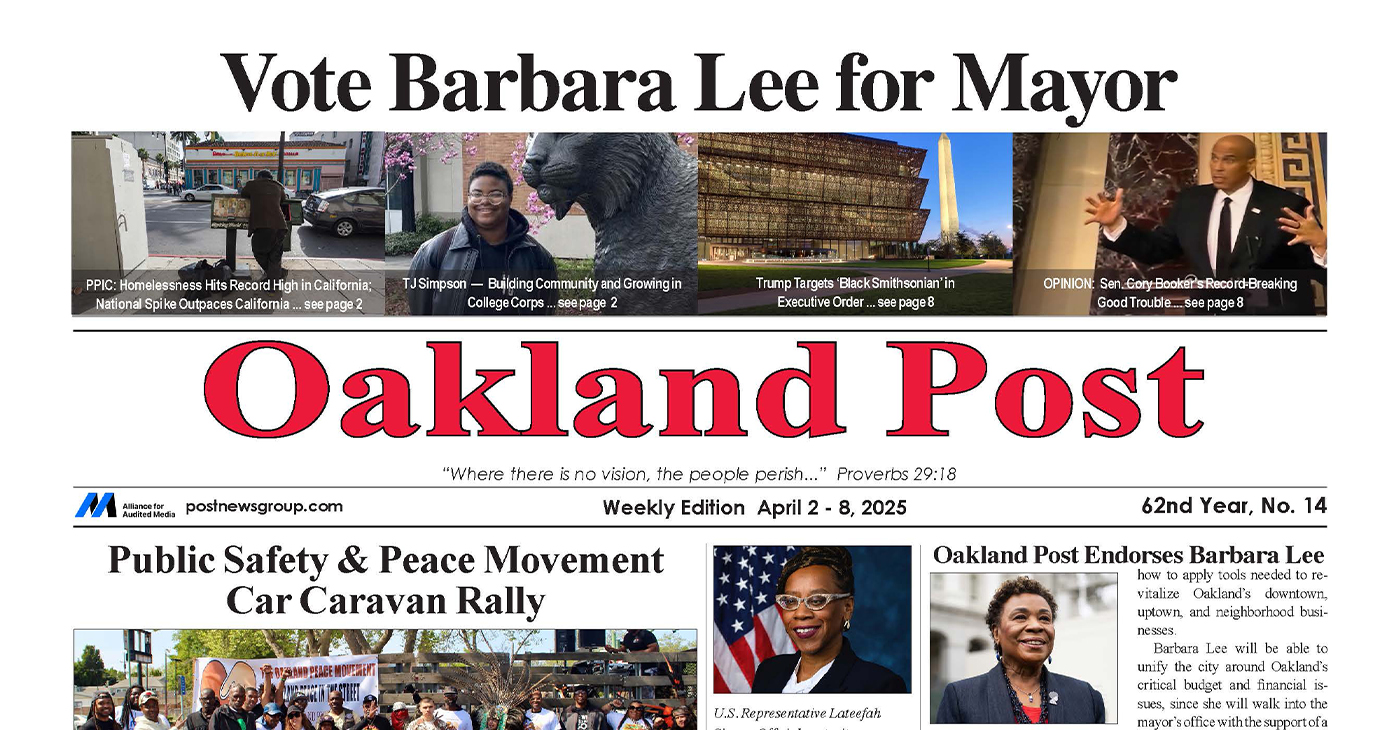Black History
The Inventive Genius of William B. Purvis: Transforming Industries and Daily Life
While the pages of history often spotlight well-known inventors, there are unsung heroes whose contributions have profoundly impacted our world. One such person is William B. Purvis, born in Philadelphia, Pennsylvania, into a wealthy and influential family, one of the eight children of Joseph Purvis, a farmer, and Sarah Louisa Forten Purvis, a noted poet.

By Tamara Shiloh
While the pages of history often spotlight well-known inventors, there are unsung heroes whose contributions have profoundly impacted our world.
One such person is William B. Purvis, born in Philadelphia, Pennsylvania, into a wealthy and influential family, one of the eight children of Joseph Purvis, a farmer, and Sarah Louisa Forten Purvis, a noted poet.
William’s maternal grandfather was African American sailmaker, merchant, philanthropist, inventor, civil rights agitator, and abolitionist James Forten. Born in 1838, William Purvis lived with his family on his father’s farm in Bucks County, Pennsylvania, until his father’s death in 1857 and the family moved to Philadelphia, where they lived with relatives.
Mostly self-taught, Purvis’ inventive career began in the packaging industry with his groundbreaking improvements to paper bags.
In 1883, he patented an innovative design for a machine that could produce paper bags with flat bottoms, which was a vast improvement over the traditional flat and cumbersome paper sacks.
His invention laid the foundation for the modern shopping bags we use today, with their capacity to stand upright and carry groceries and goods securely.
He was not content with revolutionizing just one industry. In 1890, he patented an innovative modification to the fountain pen, enhancing its functionality and efficiency.
His design addressed the issue of ink leakage, making fountain pens more reliable and convenient for everyday use. The improved fountain pen design made writing a smoother and more enjoyable experience, and it laid the groundwork for subsequent developments in pen technology.
In 1892, Purvis turned his inventive mind toward the world of office equipment. He patented an improved hand stamp that featured a unique ink-distribution mechanism.
This design ensured consistent and uniform ink distribution, preventing blotting and smudging. His hand stamp design found widespread application in businesses, government offices, and postal services, streamlining administrative processes and reducing errors.
Purvis’s creative genius wasn’t confined to everyday items; he also made a significant impact on public transportation.
In 1893, he patented a close-conduit electric railway system, a pioneering technology that transformed urban transportation. This system consisted of electric railways powered through underground conduits, eliminating the need for unsightly overhead wires.
Purvis’ invention made urban transportation more efficient, aesthetically pleasing, and environmentally friendly.
William Purvis never married. He spent his golden years with his sister Annie. He died on Aug. 10, 1914, in Philadelphia.
Activism
Oakland Post: Week of April 2 – 8, 2025
The printed Weekly Edition of the Oakland Post: Week of April 2 – 8, 2025

To enlarge your view of this issue, use the slider, magnifying glass icon or full page icon in the lower right corner of the browser window.
Activism
Oakland Post Endorses Barbara Lee
Barbara Lee will be able to unify the city around Oakland’s critical budget and financial issues, since she will walk into the mayor’s office with the support of a super majority of seven city council members — enabling her to achieve much-needed consensus on moving Oakland into a successful future.

As we end the celebration of Women’s History Month in Oakland, we endorse Barbara Lee, a woman of demonstrated historical significance. In our opinion, she has the best chance of uniting the city and achieving our needs for affordable housing, public safety, and fiscal accountability.
As a former small business owner, Barbara Lee understands how to apply tools needed to revitalize Oakland’s downtown, uptown, and neighborhood businesses.
Barbara Lee will be able to unify the city around Oakland’s critical budget and financial issues, since she will walk into the mayor’s office with the support of a super majority of seven city council members — enabling her to achieve much-needed consensus on moving Oakland into a successful future.
It is notable that many of those who fought politically on both sides of the recent recall election battles have now laid down their weapons and become brothers and sisters in support of Barbara Lee. The Oakland Post is pleased to join them.
Activism
Oakland Post: Week of March 28 – April 1, 2025
The printed Weekly Edition of the Oakland Post: Week of March 28 – April 1, 2025

To enlarge your view of this issue, use the slider, magnifying glass icon or full page icon in the lower right corner of the browser window.
-

 Activism3 weeks ago
Activism3 weeks agoWe Fought on Opposite Sides of the Sheng Thao Recall. Here’s Why We’re Uniting Behind Barbara Lee for Oakland Mayor
-

 Activism4 weeks ago
Activism4 weeks agoSan Francisco Is Investing Millions to Address Food Insecurity. Is Oakland Doing the Same?
-

 #NNPA BlackPress3 weeks ago
#NNPA BlackPress3 weeks agoRev. Dr. Jamal Bryant’s Black Church Target Boycott Mobilizes 150,000
-

 Activism3 weeks ago
Activism3 weeks agoFaith Leaders Back Barbara Lee for Mayor, Criticize Candidate Loren Taylor for Dishonest Campaigning
-

 Activism4 weeks ago
Activism4 weeks agoOakland Post: Week of March 12 – 18, 2025
-

 #NNPA BlackPress3 weeks ago
#NNPA BlackPress3 weeks agoRecently Approved Budget Plan Favors Wealthy, Slashes Aid to Low-Income Americans
-

 Activism3 weeks ago
Activism3 weeks agoGroup Takes First Steps to Recall District Attorney Diana Becton
-

 Activism2 weeks ago
Activism2 weeks agoOakland’s Most Vulnerable Neighborhoods Are Struggling to Eat and Stay Healthy























































